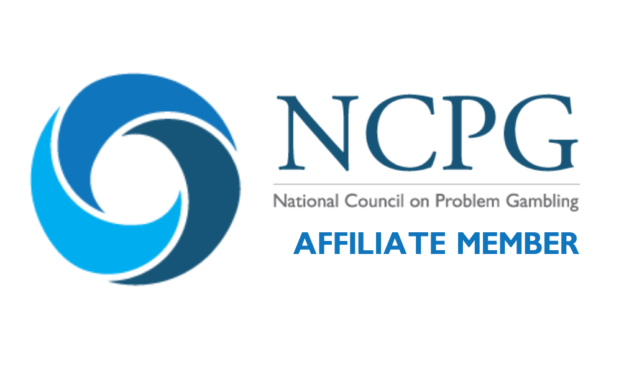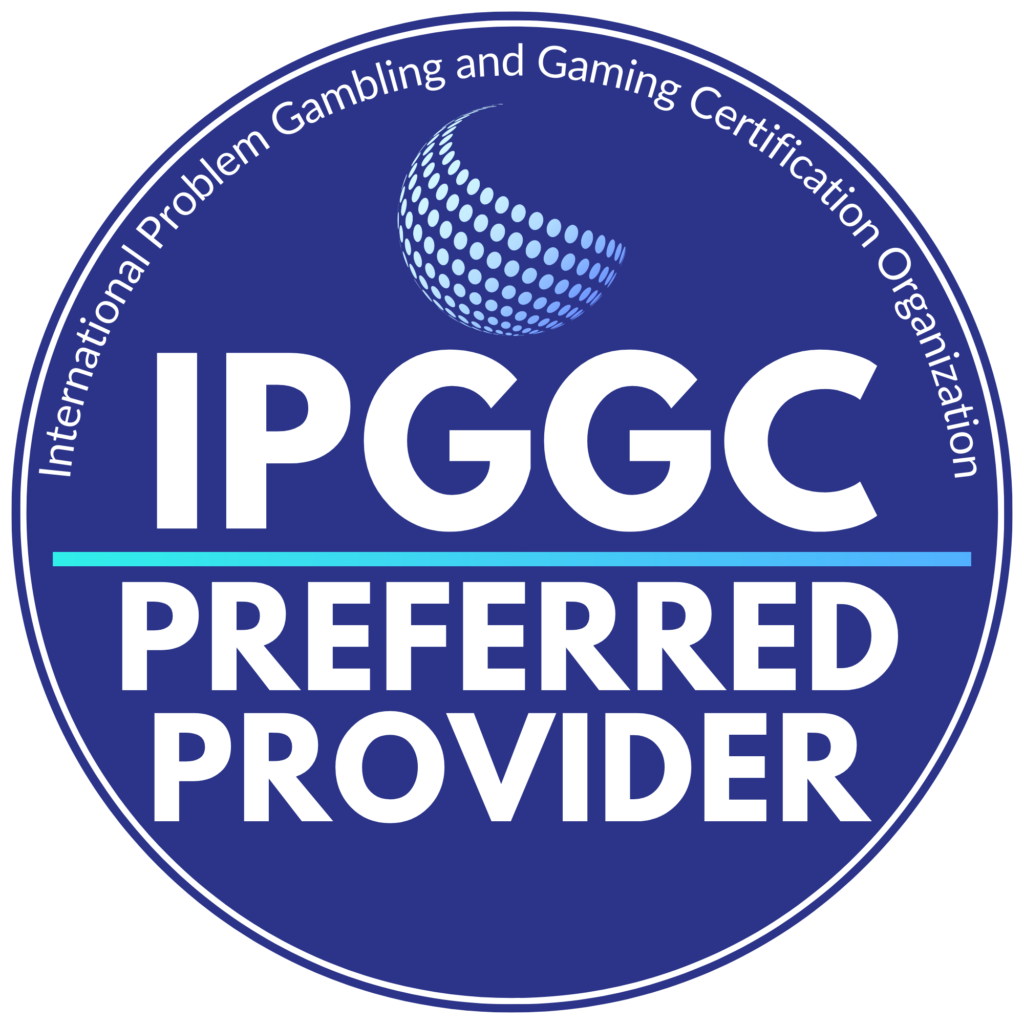ABOUT
The Council on Compulsive Gambling of Pennsylvania (CCGP) is a 501(c)3 nonprofit organization affiliated with the National Council on Problem Gambling (NCPG) and a preferred provider of the International Problem Gambling and Gaming Certification Organization (IPGGC).



Our purpose is to educate and disseminate information on compulsive gambling and to facilitate referrals to help. The Pennsylvania Council provides speakers, workshops, seminars, and information on this public health problem to business, industry and labor groups, schools and colleges, health care and treatment facilities, and to community and religious organizations.
We Serve
Those Looking for Help
We assist individuals in Pennsylvania who are seeking more information about, or help for, gambling problems. The CCGP manages the 24/7, free and confidential Problem Gambling Helpline in Pennsylvania. We refer all callers to the closest resources, which may include local trained clinicians, or nearby Gamblers Anonymous or Gam-Anon meetings.
Those Providing Help
We also act as support for professionals in Pennsylvania who provide assistance or treatment services to individuals who are experiencing issues related to gambling.
Accomplishments
- 24/7 live clinical referral center since February of 2007
- Thousands of PA therapists have completed our 30 hour Level # 1 clinical training
- Hundreds of PA therapists have completed our 30 hour Level # 2 course
- The Council has completed a (3) year state paid Prevention Program called “Smart Choices” addressing Prevention for Adolescent Problem Gambling
People
Josh Ercole
Executive Director
Josh joined the CCGP in April 2013. He manages the daily operations of the organization and oversees strategic planning and program development. Josh has trained thousands of casino team members, clinicians, students and other professionals about warning signs of problem gambling and available resources for help. In addition, Josh works very closely with guest presenters and trainers in the scheduling and facilitating of workshops throughout Pennsylvania. Josh regularly represents the Council at industry conferences.
Gregory A. Krausz, MA, CAADC, LPC, PMAC, PECS
Director of Training and Education
Greg is a Licensed Professional Counselor, Certified Advanced Alcohol and Drug Counselor (with a certificate of competency in problem gambling endorsement), a Pennsylvania Master Addiction Counselor and Pennsylvania Endorsed Clinical Supervisor. Greg is also the Owner of Monocacy Counseling Associates. He is a graduate of Moravian Theological Seminary in 2002 with a Master’s Degree in Pastoral Counseling. He has been a counselor, clinical supervisor, and program director in the addiction, gambling, and mental health counseling field for the past 31 years. He was awarded the 2016 Bishop Kortz award for excellence in the field of Pastoral Counseling from Moravian Theological Seminary.
Molly Ercole
Communications & Office Manager
Molly is a 2001 graduate of The College of New Jersey, and spent several years post- graduation as the Prevention Manager at the Council on Compulsive Gambling of NJ, Inc. Her professional experience evolved with positions held in trade association management, meeting planning and strategic sourcing for an event tech firm. Molly joined CCGP in 2014 as a part time social media coordinator, and her role has continued to expand since. She is currently the Council’s Office and Communications Manager. In addition, she is a mom to one amazing daughter and one adorable dog-ter.
Founders
- Jack Wolf (deceased), the founder of Gamblers Anonymous in Pennsylvania, South Jersey & Delaware.
- Angelo Salvatore (deceased)
- Yvonne Kaye, Ph.D.
- Jim Pappas (deceased)
The History of Gambling in Pennsylvania
Horse Racing
In 1959, the Race Horse Industry Reform act was passed, paving the way for legalized wagering on horse racing in Pennsylvania. In 1963, the Meadows Racetrack opened in southwestern PA, and over the years several other racetracks were established. Racetracks still exist in PA today, however they now operate in partnership with gaming licensees, and the establishments are referred to as ‘racinos’.
Pennsylvania Lottery
As a result of the passing of Act 91 of 1971 it was decided that PA would begin offering lottery sales, and in March 1972 the first game was launched. A few years later in May of 1975, the first PA Lottery instant game was launched and in March of 1977 we saw the creation of the Daily number, the first of the Lottery’s number drawing games.
Since then, the PA Lottery has offered several other daily and weekly drawing games, various instant scratch games and digital games like Xpress Sports and Keno. In 2018, following the Act 42 Expansion (see below), the PA iLottery was launched and online lottery games became available in Pennsylvania.
Currently, the PA Lottery is the only state lottery with a sole beneficiary, dedicating all proceeds toward programs aimed at assisting older Pennsylvanians.
Bingo & Small Games of Chance
The Pennsylvania Bingo Law was passed in 1981. The Law allows certain nonprofit associations, known as “Associations,” to conduct Bingo for the purpose of raising funds for “Charitable” and “Civic” purposes.
The Pennsylvania Local Option Small Games of Chance Act became law in 1988. The legislation allows limited gaming to be offered in non-profit organizations and in for-profit taverns. Some of the game types include pull-tab games, punchboards, raffles, drawings, fifty-fifty contests and sports pools.
Off-Track Horse Betting
In addition to horse racetracks, there are also several off-track horse betting establishments that simulcast races from all over the world. These off-track betting locations have been available since 1988 and currently, each location is affiliated with a specific racetrack. Online betting and phone betting on horse racing is also legal. Greyhound racing, however, is not permitted in Pennsylvania.
Casino Gambling
In 2004, the Pennsylvania Race Horse Development and Gaming Act was passed. The legislation authorized slot machine gambling at licensed facilities throughout Pennsylvania. Originally, a total of fourteen licenses were made available, which was later expanded, and in 2006 the first location opened. In 2010, tables games became available at Pennsylvania casinos.
In Pennsylvania, regulation and oversight of casino gaming is the responsibility of the Pennsylvania Gaming Control Board (PGCB). Currently, there are four categories of casino licenses that have been authorized by the PGCB and sixteen total locations are open.
- Category 1: Horse race track casinos (Racinos)
- Category 2: Stand-alone casinos
- Category 3: Resort casinos
- Category 4: Satellite casinos (following 2017 legislation)
2017 Expansion
In late October 2017, Act 42 was passed, paving the way for a significant expansion of legalized gambling in Pennsylvania. The bill outlined several new types of gambling, including:
- Category 4 Casinos (Satellite Casinos): Smaller casinos with a limited number of maximum slot machines (750) and table games (30). A maximum of ten licenses were made available – currently five have been awarded and three properties are currently open.
- Truck Stop Video Gaming Terminals (VGT): Licensed operators may partner with eligible truck stops across the state to operate up to five onsite video gaming machines.
- Airport Gambling: PA casinos may make agreements to operate an interactive gambling parlor with an airport authority at Pennsylvania’s international or regional airports.
- Sports Wagering (brick & mortar/online): On May 14, 2018 the US Supreme Court declared the Professional and Amateur Sports Protection Act of 1992unconstitutional and state legislators across the country were able to determine whether or not sports betting should be made available in their jurisdiction. In November 2018, the first brick and mortar sports wager was placed in Pennsylvania, and in May 2019 the first online bet was placed on a sporting event. Betting on eSports (competitive video gaming) in Pennsylvania is not currently legal.
- Fantasy Contests: For many years fantasy contests have been available in PA – Act 42 allowed for these games to be regulated, and as a result, offered tools and protections to players aimed at preventing problems, and increasing the access to help.
- Online Casino Games: The Pennsylvania Gaming Control Board began accepting applications for online gaming licenses in July 2018 and in July 2019, the first online casino game was launched. Currently, several operators in Pennsylvania offer online options including slots, poker, and various table games.
- Online Lottery Games (PA iLottery): In May 2018, the PA iLottery launched and became the first type of legal online gambling available in Pennsylvania.
Skill Games
For the past several years, “skill machines” have been available throughout Pennsylvania. These machines, which often look similar to video slot machines, have been able to circumvent gaming laws and regulations as a result of a ruling that found them not to be “gambling” machines. As a result, these machines can now be found at convenient stores and gas stations, bars and taverns and other clubs and establishments throughout Pennsylvania and there is virtually no oversight or protection in place for those who play them.
Illegal Gambling
While legalized gambling has become more widely available than ever before, illegal gambling certainly still exists in Pennsylvania.
Underground gambling establishments, bookies, and private gambling games are still accessible across the state. In addition, many private clubs, bars and social halls have video gaming machines on the premises. There has been discussion over the years about legalizing and regulating machines in these establishments, but to date, this has yet to pass.
Minimum Age
The minimum age to participate in legalized gambling in Pennsylvania:
- PA Lottery (drawings/instant/iLottery) – 18
- Casino Gambling (brick & mortar/online) – 21
- Video Gaming Terminals (VGT’s) – 21
- Horse Betting & Off-Track Betting – 18
- Fantasy Contests – 18 (21 when played in a casino)
- Bingo – 18 (unless accompanied by an adult)
- Sports Betting (brick & mortar/online) – 21
Other Risky Gambling Activity
Individuals often engage in other activities that while having similar elements as gambling may not be recognized as such. There is a fine line between some activities seen as being based on knowledge/skill and gambling. These include activities like stock market/day trading, wagering on competitive video gaming (eSports) and participation in certain skill games, raffles, drawings, card games and sports pools/leagues.

